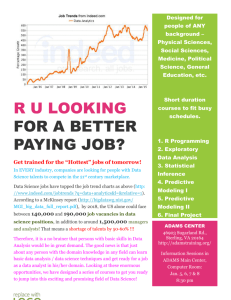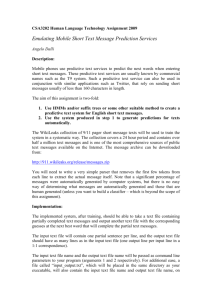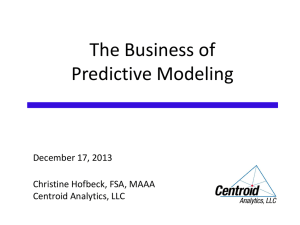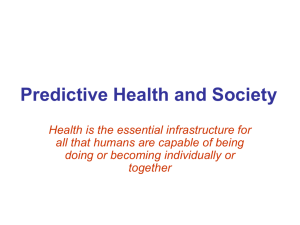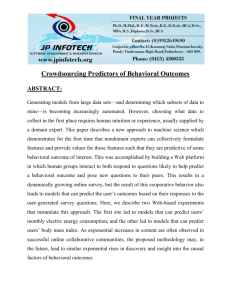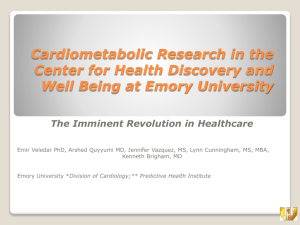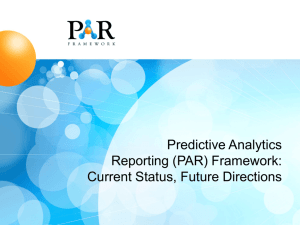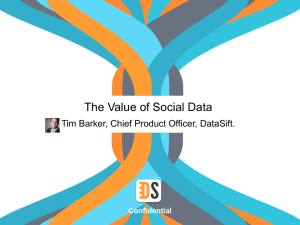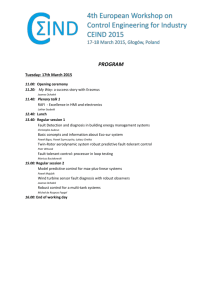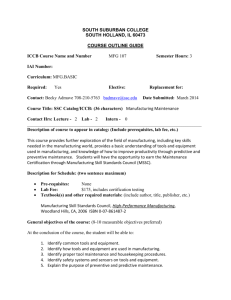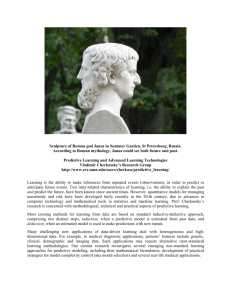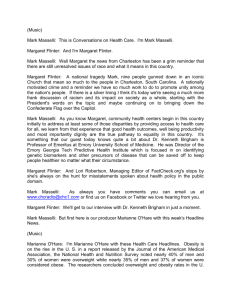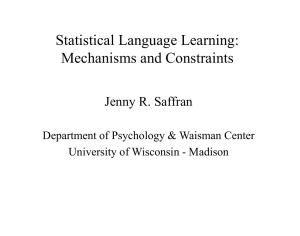Predictive Health - Open4 Definition
advertisement
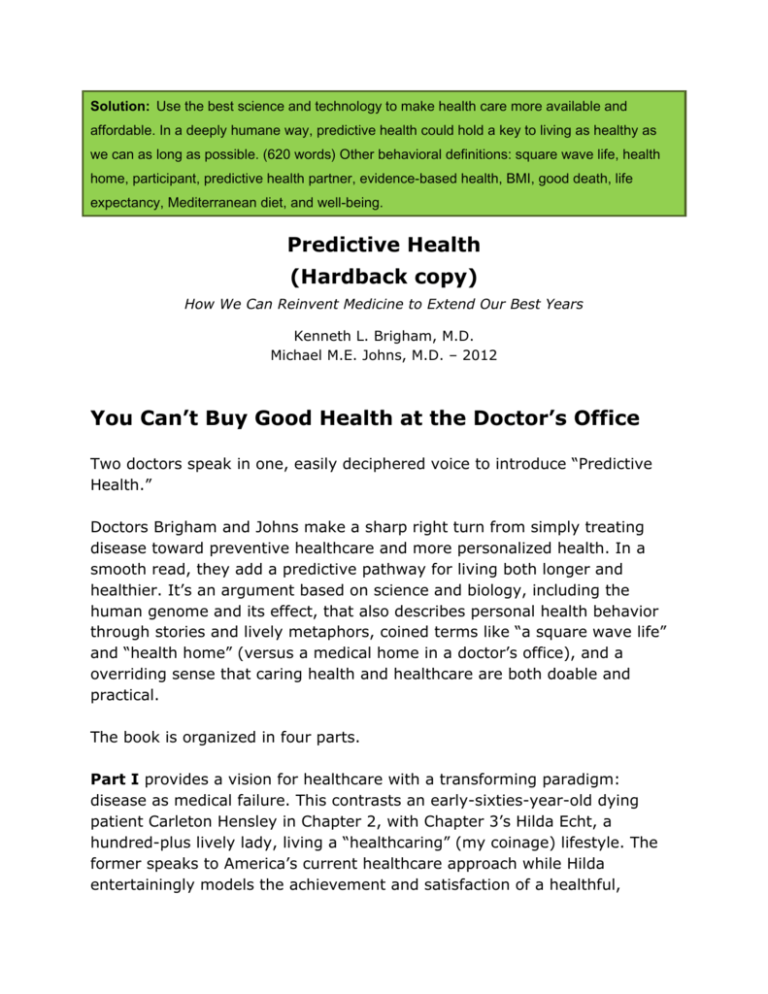
Solution: Use the best science and technology to make health care more available and affordable. In a deeply humane way, predictive health could hold a key to living as healthy as we can as long as possible. (620 words) Other behavioral definitions: square wave life, health home, participant, predictive health partner, evidence-based health, BMI, good death, life expectancy, Mediterranean diet, and well-being. Predictive Health (Hardback copy) How We Can Reinvent Medicine to Extend Our Best Years Kenneth L. Brigham, M.D. Michael M.E. Johns, M.D. – 2012 You Can’t Buy Good Health at the Doctor’s Office Two doctors speak in one, easily deciphered voice to introduce “Predictive Health.” Doctors Brigham and Johns make a sharp right turn from simply treating disease toward preventive healthcare and more personalized health. In a smooth read, they add a predictive pathway for living both longer and healthier. It’s an argument based on science and biology, including the human genome and its effect, that also describes personal health behavior through stories and lively metaphors, coined terms like “a square wave life” and “health home” (versus a medical home in a doctor’s office), and a overriding sense that caring health and healthcare are both doable and practical. The book is organized in four parts. Part I provides a vision for healthcare with a transforming paradigm: disease as medical failure. This contrasts an early-sixties-year-old dying patient Carleton Hensley in Chapter 2, with Chapter 3’s Hilda Echt, a hundred-plus lively lady, living a “healthcaring” (my coinage) lifestyle. The former speaks to America’s current healthcare approach while Hilda entertainingly models the achievement and satisfaction of a healthful, flourishing life. They were real people with real stories that reappear throughout the book. Part II describes advances in the study of the genome and shares a new set of “biomarkers” that one day may help everyday people adapt to health risks before, not after, they happen. Chapter 5 highlights the role diet, exercise, environment, and yes, emotions have in how our body plays its genomic cards. Chapter 7 describes four needles in the human haystack— inflammation, immunity, oxidant stress and regenerative capacity—that could effectively serve as biomarkers to better manage personal health and prevent disease onset. Part III is about moving the target from disease toward health by creating a new American healthcare system. The authors describe what predictive health would look like in the real world. Chapter 13 calls for more evidencebased health while also delving into mind-body practices, religion and the effect of health information overload. This portion of the book had more inside-medicine shop talk than the other parts. On the other hand, Part III closes with a visit to an eighteenth floor experiment at Emory University Midtown Hospital in Atlanta where they deal only with healthy people. This is a whole body and whole system view that reflects a partnership and research collaborative with cross-town Georgia Tech. Each “participant” (since they aren’t patients) works with a “Predictive Health partner,” a new, non-medical person who accompanies each participant on their personal quest for optimal health. Part IV is worth the read by itself and in particular, Chapter 18, “Toward a Square Wave Life”: living as healthy as we can for as long as possible. Brigham and Johns think that “waiting until people are sick is too late… [H]ealth is a human condition, an integral part of our everyday experiences, not a simple biological fact. It is a way of living. We don’t buy it at the doctor’s office.” The book closes with an Epilogue on accepting death as a natural part of a life well lived. This is a bold book about preventing disease before it can begin. “Predictive Health: How We Can Reinvent Medicine to Extend Our Best Years” suggests a blueprint for increasing the number of healthy people and above all, keeping them, and you, that way along an extended lifeline. Time will tell whether predictive health scales up in America or elsewhere. Nonetheless, this is a health reframing that will inform and influence the lifestyle decisions of many readers. As another Amazon reviewer concluded, “Our pocketbooks demand we act on this, as does the fact we can save countless more lives if we do.” SOURCE Predictive Health: How We Can Reinvent Medicine to Extend Our Best Years By Kenneth L. Brigham and Michael M.E. Johns Hardback: 256 pages Publisher: Basic Books; 1 edition (October 2, 2012) ISBN-13: 978-0465023127 Kenneth Brigham, M.D., is a professor of medicine and associate vice president for health affairs at Emory University. Michael M. E. Johns, M.D., is chancellor and former executive vice president for health affairs at Emory University. Over the past eight years they have collaborated to develop the Emory Georgia Tech Predictive Health Institute and its Center for Health Discovery and Well Being. Both authors live in Atlanta, Georgia.
